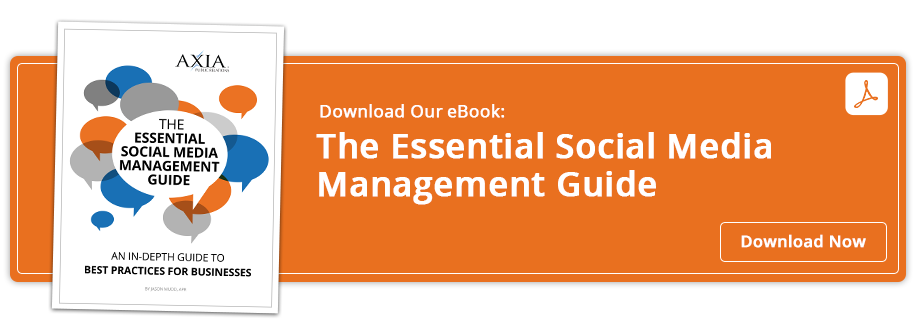 A social media policy is an outline for how employees should conduct themselves online — both personally and professionally. When done right, social media policies set employees up for success and help companies curb issues with security, reputation, and the law.
A social media policy is an outline for how employees should conduct themselves online — both personally and professionally. When done right, social media policies set employees up for success and help companies curb issues with security, reputation, and the law.
Good social media policies are individualized to align with company culture, but there are certain guidelines that should always appear. Some of these key principles cover affiliation disclosure, do’s and don'ts of sharing information, and security protocols. After reading a social media policy, an employee should know what’s expected of them and recognize that both they and the company will be held responsible for their actions online. The permanence of social media posts isn’t to be taken lightly.
Audio: Listen to this article.
When forming a social media policy, employers need to remember they can’t require employees to interact with company accounts or be active on social media without compensation.
Here are three examples to shed light on how social media policies differ between companies:
In three pages, Coca-Cola lays out clear guidelines for posts made by agency associates, online spokespeople, and the company. Each group has its own subcategories that connect back to Coca-Cola’s seven online social media principles: leadership, collaboration, integrity, accountability, passion, diversity, and quality. This prevents confusion about social media expectations, regardless of someone’s position within the company. Coca-Cola’s social media policy also provides a contact for answering any questions. From disclosure requirements to handling negative comments to copyright rules, Coca-Cola covers its bases.
Ford is clear and concise with only five overarching principles:
-Be honest about who you are
-Make it clear that views expressed are your own
-Show respect and humility in all communication
-Show good judgment in sharing only public information
-Be aware that what you post is permanent.
Both thoughtful and direct at one page long, this policy is easily consumable for employees. However, it would benefit from more details that tailor the policy to its employees and company culture.
ESPN’s journalistic, public-facing nature is successfully reflected in its social media policy. Since a variety of talking heads represent it, ESPN is more cautious in its guidelines than the previous companies are. It emphasizes the idea of maintaining credibility and heavily focuses on rules regarding commentary on political and social issues. This social media policy is a great example of writing industry-specific guidelines.
A legal perspective
Since social media is a huge part of our lives, it’s only appropriate that corporate social media policies comply with the law. The National Labor Relations Act, in the bid to protect employees’ rights to unite efforts for better work conditions, regulates companies’ social media policies.
Therefore, your company’s social media policies might be unlawful if:
- They attempt to prevent employees from discussing with one another on social media about wages, salary, or other forms of compensation.
- The policies prevent employees from using social media to organize and bargain collectively. Employees’ industrial rights are sacrosanct.
- They attempt to limit the employees’ free speech. Employees have the right to complain on social media about any form of unfair treatment at their workplace.
Employers may have to pay overtime wages when they ask employees to engage in social media after hours, as well as when they email after hours. Also, employers can’t reasonably require their employees to take any action on social media if social media isn’t part of their job description and employment compensation.
On the part of employees and agents, there’s a duty of disclosure when they share, promote, or comment on content tied to their employment relationship.
Read our post to learn how to develop your own social media management guidelines. Doing it right the first time will catch problems before they happen. Look to PR to keep up with the changing landscapes of social media and employment practices. As always, you should consult a local attorney who specializes in employment law in your state for custom counsel.
Photo by Andrea Piacquadio from Pexels
Topics: owned media, social media


Comment on This Article